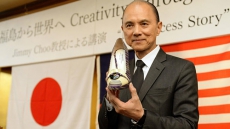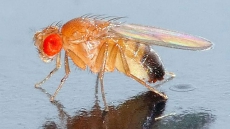Inspired by a brain game, researchers have developed a novel gene regulation method that enables thought-specific brain waves to control the process of conversion of genes into proteins (gene expression).
A thought-controlled implant could one day help combat neurological diseases such as chronic headaches, back pain and epilepsy.
"For the first time, we have been able to tap into human brain waves, transfer them wirelessly to a gene network and regulate the expression of a gene depending on the type of thought," said Martin Fussenegger, professor of Biotechnology and Bioengineering at the Department of Biosystems (D-BSSE) in Basel, Switzerland.
"Being able to control gene expression via the power of thought is a dream that we have been chasing for over a decade," he added.
A source of inspiration was the game called Mindflex where the player wears a special headset with a sensor on the forehead that records brain waves.
The electroencephalogram (EEG) is then transferred into the playing environment.
The EEG controls a fan that enables a small ball to be thought-guided through an obstacle course.
The bioengineers also developed a system that makes use of an EEG headset.
In this, the recorded brain waves are analysed and wirelessly transmitted via Bluetooth to a controller, which in turn controls a field generator that generates an electromagnetic field; this supplies an implant with an induction current.
A light then literally goes on in the implant: an integrated LED lamp that emits light in the near-infrared range turns on and illuminates a culture chamber containing genetically-modified cells.
"When the near-infrared light illuminates the cells, they start to produce the desired protein," Fussenegger said.
The findings were reported in the journal Nature Communications.





